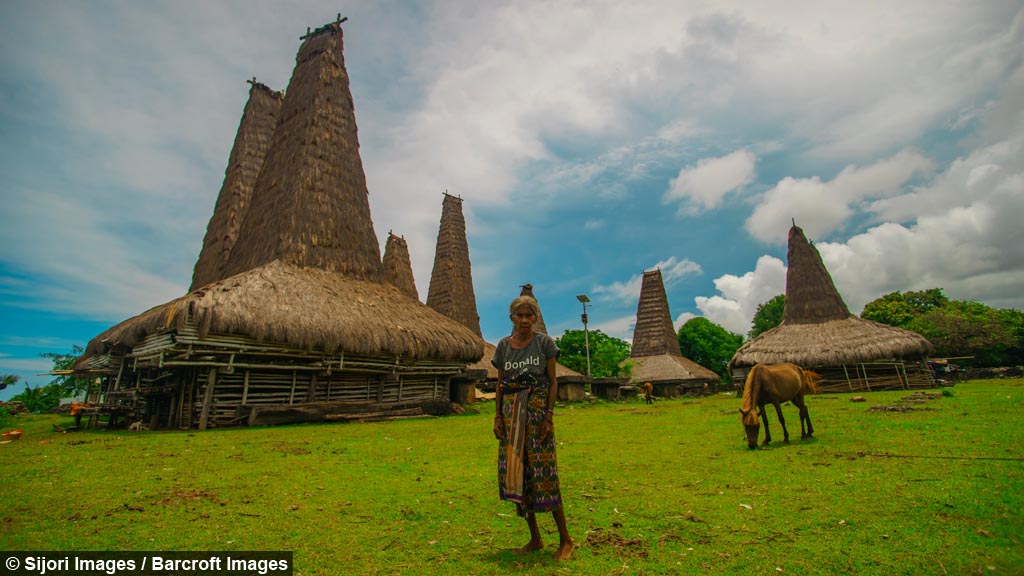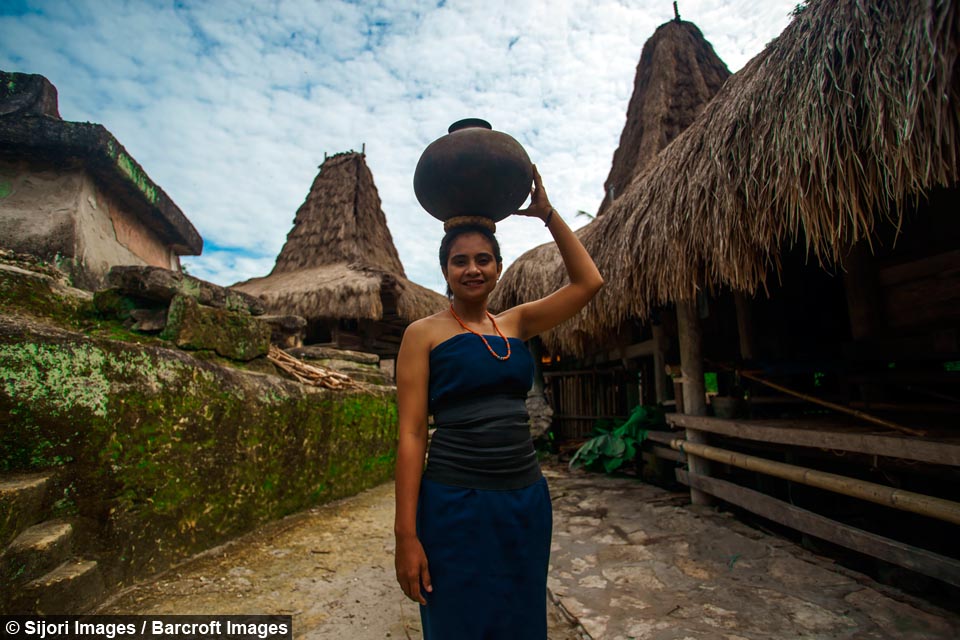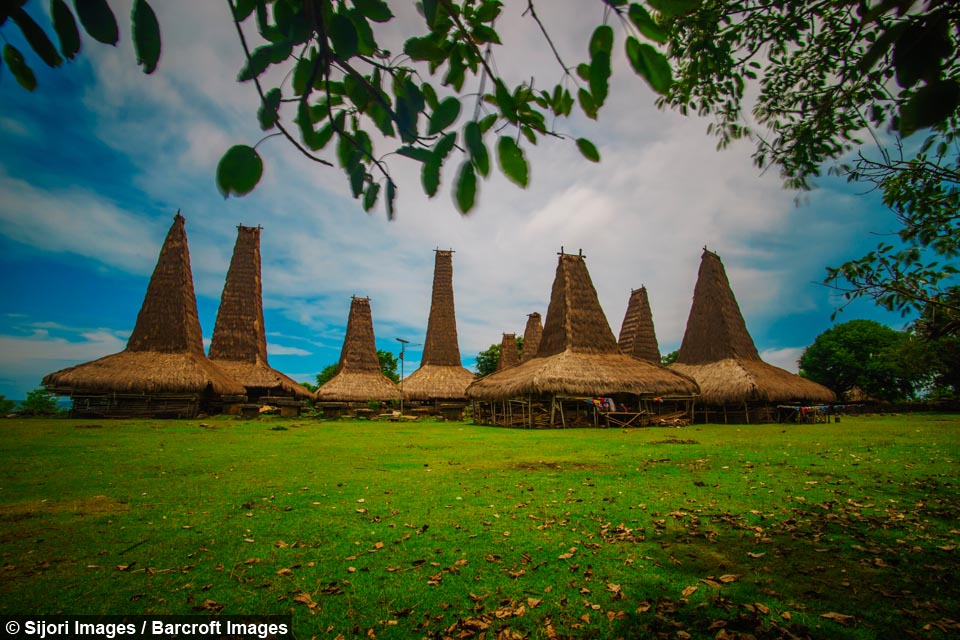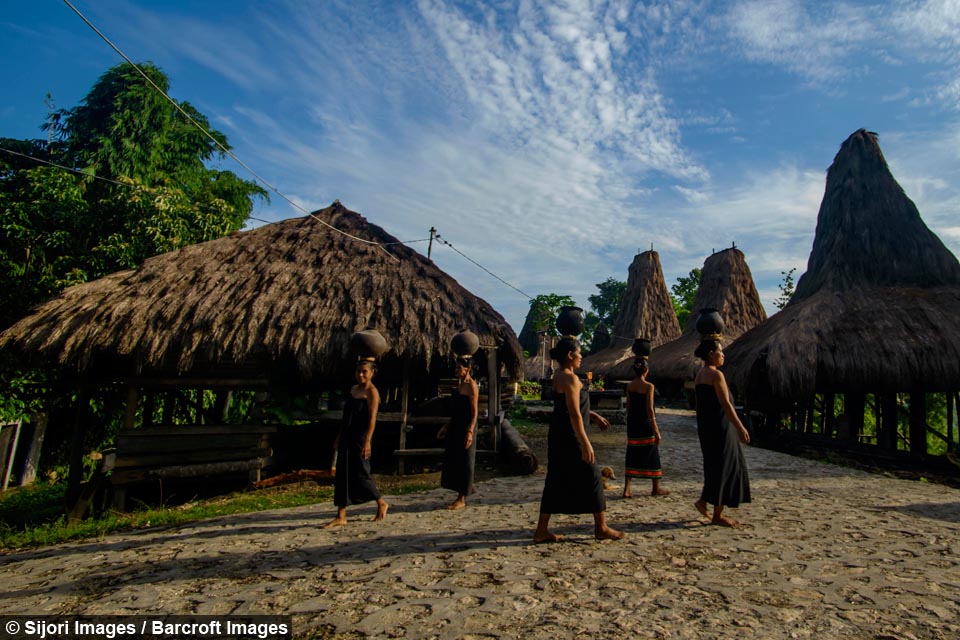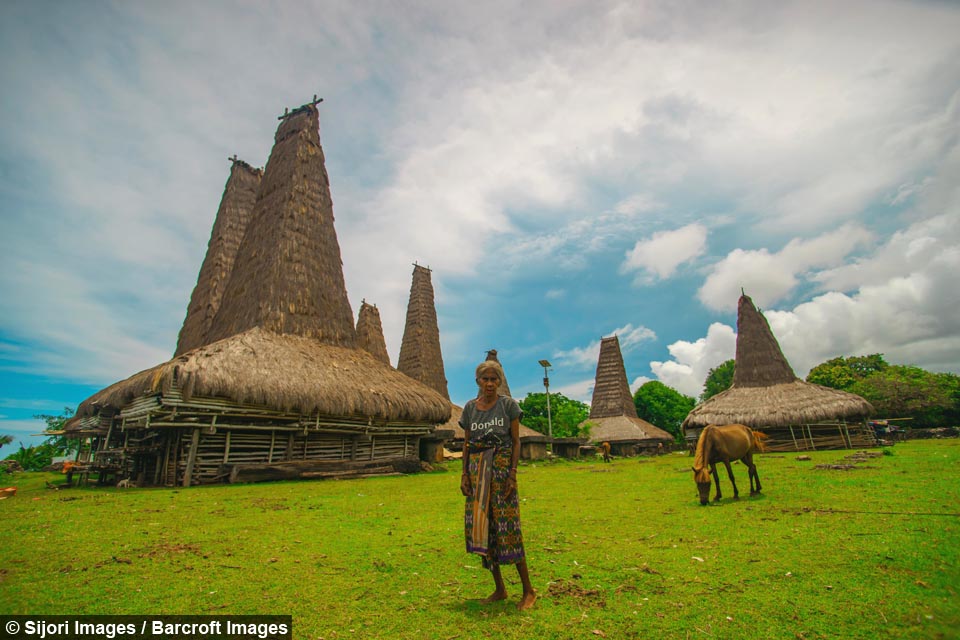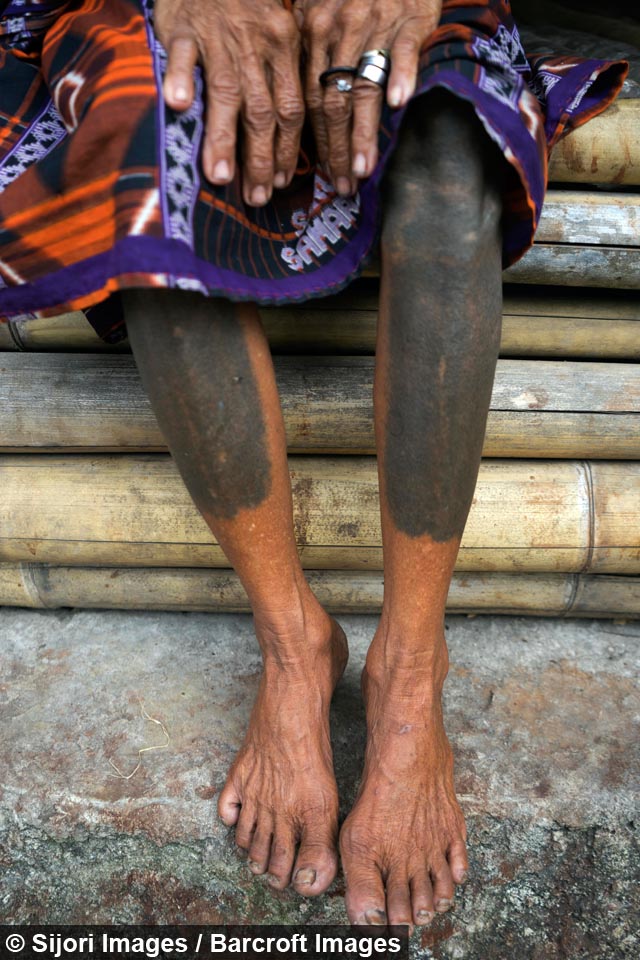The 'Tattoo Village' Of Indonesia
By Katie Mercer @KatieMercer_BM
Scroll down for the full story
Home to around only 100 Sumbanese people, the village of Praijing, sees inhabitants continuing ancient traditions and customs that have survived, despite hundreds of years of colonialism.
The ritualistic practice of tattooing has been documented by a photographer in a series of stunning portraits taken in the village in March 2017.
Firna Fajrin, a freelance photographer from Bima in central Indonesia, decided to visit the remote village after friends of his had passed through and noticed the striking body-art of the local women.
Firna said: “The old customs in the village among the indigenous peoples is very much alive and well in Praijing.
“The traditional culture is very much awake and a natural part of life.”
Firna spent four days among the villagers, getting to know them and taking pictures of their inkings.
“The tattoos usually depict flowers or animals,” he explained. “But it depends on the person.
“They are used as a means of identification and admission into a particular group.”
Firna describes a villiage content to live with tradition and observe ancient rituals – animal sacrifice is fairly regular, despite abject poverty and the men and women occupy particular gender roles within the community.
Firna said: "The men act as head of the family and females act as primary care-givers for the children.
“Praijing is very beautiful and the villagers were so friendly and greeted me with warmth.
“There is a real wisdom to the people here.”
Sumba is one of the poorest provinces in the whole of Indonesia and access to clean water is limited.
Malnutrition and malaria are huge health concerns and while a number of indigenous people are working to try to alleviate these problems, many leave the island altogether to find work and fortune in nearby Bali or Malaysia.
Sumbanese culture is centered around the Marapu belief – an ancient practice of creating harmonious relationships between humans and ancestral spirits.
The tattoos, rudimentarily etched into villagers skin, are believed to act as a way of strengthening the connection to the spirits of the past.
Although life on earth is temporary, the Sumba people believe that the ‘Ina Ama’ - ancestral spirits - live on eternally and should be worshipped.
Twice as big as Bali, Sumba is far less popular a tourist destination and very few western tourists make it to the island.
